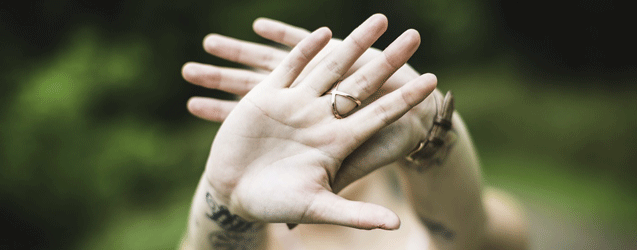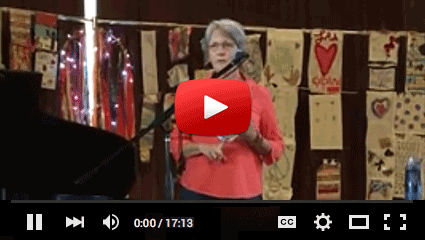Coming Out of Hiding
In high school I was so afraid to speak in front of people that I badgered Sister Petronella into letting me drop public speaking (a required course) and take an elective instead. I withdrew from theater appreciation class in college when I read on the syllabus that our course work required performing a scene in front of the class. In my first real office job, I called in sick the day my boss asked me to present a financial report to the sales managers. My field work in facilitation and teaching workshops came through spending ten years, essentially in a silent role with my back to the group, scribing and drawing out other peoples words on large sheets of paper taped to the wall.
I clearly remember the day the silence became intolerable and I put down the pens – literally and figuratively – to face the room. Ironically, the group that day was exploring the question: What is the resentment you’re holding that no one knows about? I was so far beyond resentment at that point I was seething. It was a visceral reaction. My body felt as if it were going to explode if I didn’t open my mouth and join the conversation. I had come to a threshold where I couldn’t physically tolerate hiding out anymore.
Two questions helped me break out of my enforced isolation: What was the payoff I received from my silence? What did it cost me?
I discovered an old belief I was hanging onto – No one is interested in what I have to say. I don’t know precisely where this came from, though I could cite a few instances from childhood. Ultimately it doesn’t matter. I had taken it on and used it to hide behind for most of my adult life. It cost me my full expression, creativity, and the true intimacy I longed for.
It’s not that I never spoke. After all, I do have Celtic blood coursing through my veins. I could be conversant, funny, and charming. Usually by asking lots of questions and drawing you out. I didn’t trust myself to speak when I felt deeply touched or angry. I shut down anytime a deep feeling attempted to get through. Tears were completely off limits.
The shift happened cumulatively over time. Slowly but surely sharing in the rooms of 12 step meetings. Attending lots of workshops where I was expected to speak in small groups. Sitting in women’s circles – listening to their stories, being intently listened to. I got more comfortable taking up space. I learned to trust my voice and developed the courage to speak it. It took practice and missteps as does anything new we’re learning. I’m still working on it.
Creativity is a potent vehicle for finding our voice. Fifteen years of daily journaling. Intuitive painting. Walking alone in nature. All of these helped me find mine. First by stopping and slowing down enough to listen to myself, discovering what I thought and how I felt, and bringing them into the light through creative expression.
What finally did it was cancer. Throat cancer to be specific. No irony lost on that one. When all else was stripped away, I was left with me. When my ability to speak eventually came back I had choices to make. I could continue to hide out or come out into the open. Except I didn’t want to hide out anymore.
Your voice may be words. You may also speak through music, movement, making art, and your service in the world.
If you think your voice doesn’t matter, that no one is interested in what you have to say, think again. Our stories create safety, healing, intimacy and connection with one other. Your courage opens a doorway for me. Your truth inspires me to tell mine. It has a domino affect. Sharing from the heart is the shortest distance between two people.
Watch the Video of My Talk
If you’d like to hear more, listen in to my recent talk at Life is a Verb Camp: What Do We Give Our Voice To?
Watch Video


 I am a speaker, teacher, writer, and artist working at the convergence of self-care, spirituality, and self-expression.
A Creative Conspirator - an inciter of whatever makes you come alive, an excavator of buried gifts and talents, a fresh breeze that fans the smoldering embers of abandoned creativity.
I am a speaker, teacher, writer, and artist working at the convergence of self-care, spirituality, and self-expression.
A Creative Conspirator - an inciter of whatever makes you come alive, an excavator of buried gifts and talents, a fresh breeze that fans the smoldering embers of abandoned creativity.
Mary, Very touching, human, intimate and courageous. I enjoy reading your posts. Thank you. Bev
Very insightful and courageous. Thank you for sharing